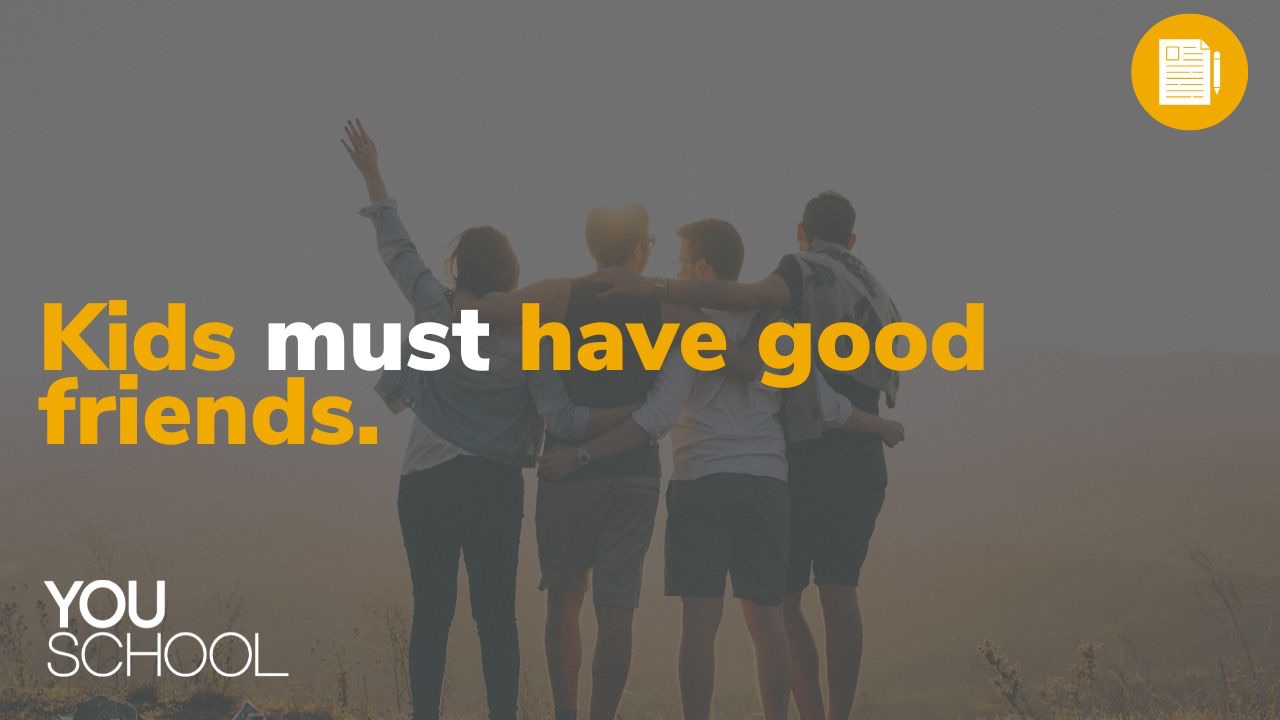Kids Must Have Good Friends

One of the great joys of my life is a guy named Nic. We met in drama class during our freshman year in high school and became instantly inseparable. Partially, it was due to our bizarre mutual bent towards dark humor (we decided to play a scene from Death of a Salesman in a comedic tone), and also partially due to survival—we both needed someone to sit with at lunch and meet at the Friday night football games. We had a lot in common, for sure, but deep down, I think we both knew we needed each other.
Looking back now, I don’t know who I would’ve turned out to be without Nic.
Nic has always laughed at my jokes. He’s always been interested in my opinions and perspective. He misses me when we don’t see each other and still runs his big life decisions by me. How do I know? Because I feel the same way and do the same with him.
Our friendship taught me about life, especially who I am, my inherent value, and my worth. In his eyes, I’m funny and interesting, have something to contribute, and am a valuable person to know. I can’t explain how important his friendship was to my development, and now as we continue to share life together.
It’s also true about your kids (or students). It’s their friendships that will shape them more than anything else.
The primary task of the adolescent years is to figure out who you are and where you fit in this world. The sophisticated phrase is “Identity Formation.” It doesn’t work well without good friends. As a kid searches for answers to life’s most pressing questions, their discovery of clarity involves interaction, a necessary back and forth. Peers are mirrors to them to help them see themselves clearly. Peers are lenses to see the world.
That being said, there are a few things I’m pondering:
- To what extent do friendships work (or not work) for identity formation when most of your interaction is with them virtually?
- What do you do with a kid who struggles with finding good friends?
- What’s the best way to model healthy friendships to your kids?
- How much do you try to intervene when they feel lonely or isolated?
- What do you do when the kids they surround themselves with are negative influences?
What do you think? Comment below--
